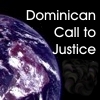
ADVOCACY
POINTS:
IRAQI REFUGEES
This information was formulated as a result of a Catholic Sisters
10-day delegation to Lebanon and Syria in January, 2008. The delegation,
sponsored by Catholic Relief Services, met with a broad cross section
of people in both countries including: UNHCR Regional Representatives,
Christian and Islamic leaders, Religious NGOs, civil NGOs, a member
of the Syrian Parliament, Iraqi refugees and U.S. diplomatic personnel.
SITUATION
- There are more than 2 million Iraqi refugees in the Middle
East, with the largest numbers in Syria (1.5 million people),
Jordan (700,000 people) and Lebanon (50,000 people).
- Each country has had a unique response to the crisis and requires
separate consideration when addressing the possible response
in U.S. policy. A common denominator among all of the countries
in the region is that none of the countries have signed the 1951
Convention Related to the Status of Refugees, because they are
hosting large numbers of Palestinian refugees. This means that
the governments do not formally recognize the UNHCR refugee registration
process (though they informally accept the designation). Another
common factor is that the host countries are severely taxed in
their effort to respond to the refugee crisis. The countries
are in great need of economic assistance and increased capacity
to relocate the refugees to third countries. Snapshots of two
country situations are as follows:
- Syria welcomed the refugees
as guests until October 2007, when Syrian domestic pressures
(including escalating cost of housing in Damascus, school
over-crowding, and concern about the Syrian poor) caused
the government to begin requiring the refugees to have a
visa prior to entering Syria. This visa can be obtained either
in Baghdad or at the border. Syria has not had a history
of working with non-governmental organizations (NGOs) and
is beginning the process of having the Red Crescent (a quasi-governmental
organization in Syria) contract with international NGOs for
assistance to the Iraqi Refugees. From 2003 to the present,
the Syrian people have been personally welcoming and have
responded individually to the needs of the Iraqi refugees
by opening their homes and sharing needed resources. An additional
complexity in Syria is that Palestinian refugees who lived
in Iraq are barred from entering. They have set up a moderate-sized
camp inside Iraq at the Syrian border and are living in dire
conditions.
- Lebanon has had a closed border policy for
refugees. Until the end of January, 2008, any refugee detained
by Security would be charged with entering the country illegally
and sentenced usually for one month (the minimum sentence).
They were then transferred to the detention facility in Beirut.
At the end of January, Caritas Lebanon Migrant Center (CLMC)
and the Lebanese government worked out an accord allowing Iraqi
refugees to be paroled into the country if they pay $630 per
family for a six-month temporary visa. During the six months
they can look for work and find a sponsor who will petition
for them to become permanent residents in Lebanon. If they
cannot find a sponsor they can renew their temporary residence
permit with a new filing fee and application. This gives refugees
a mechanism for regularizing their status in Lebanon. UNHCR
and CRS/CLMC will share the costs for those Iraqis without
the resources to pay.
ADVOCACY POINTS
- RESETTLEMENT IN THE UNITED STATES: Encourage
the US State Department to meet at least its target goal of resettling
12,000 refugees this year and consider the possibility of allocating
more resources and personnel to expedite the processing of refugees
especially in Department of Homeland Security that does the security
interviews with Iraqi refugees.
- MIGRATION AND REFUGEE ACCOUNT (MRA): Support
increased funding for the Migration Refugee Assistance (MRA)
Account through FY09 appropriations and supplemental bills.
- UNHCR FUNDING: Encourage the US government
to generously fund the UNHCR appeal of $261 million for FY08
operations relating to Iraqi refugees in the region. The US has
quickly offered to provide 1/3 of the requested UNHCR funding
whenever there has been a request. However, the overall funding
at times has gone unmet. The US should increase its contribution
to this needed fund.
- BILATERAL FUNDING FOR HOST COUNTRIES: Support
bilateral funding to the governments of Lebanon, Jordan and Egypt
to ease the burden placed on host governments with large refugee
populations. Seek mechanisms for and support to the refugees,
NGOs and the UNHCR operating within Syria.
- COMPLEX ISSUES TO BE RESOLVED:
- NARROW THE APPLICATION OF SYRIAN SANCTIONS TO EXEMPT
HUMANITARIAN NGOs FUNDED BY THE US: International
NGOs funded with State Department money to work with Iraqi
refugees in Syria are limited by all of the Syrian sanctions.
This is hampering their work and making it more costly for
them to get the needed infrastructure. There needs to be
a way to mitigate this reality.
- IRAQI-PALESTINIAN REFUGEES: Because
of the long history of Palestinian refugees in the region,
those fleeing Iraq are caught in a no-person’s land,
not being welcomed in any country in the region. This needs
to be addressed in some way that protects this vulnerable population.
Sister Simone Campbell, SSS
NETWORK Executive Director
202-347-9797 ext, 227
scampbell@networklobby.org |
Iraqi
Refugees: Living in Limbo
A
moral and humanitarian crisis
Delegation
members:
Arlene Flaherty, OP, (Blauvelt) of Catholic Relief Services
Toni Harris, OP, (Sinsinawa) International Dominican Co-Promoter of Justice and
Peace
Durstyne Farnan, OP, (Adrian) North American Dominican CoPromoter of Justice
and Peace
Anne Curtis, RSM, Institute of the Sisters of Mercy Leadership
Simone Campbell, SSS, Network
Carmen Villegas,
Las Hermanas
Marie Lucey, OSF
LCWR
Clare Nolan, RGS,
NGO/UN Religious of the Good Shepherd
Laura Sheahen
Jenna Welch
CRS staff |



